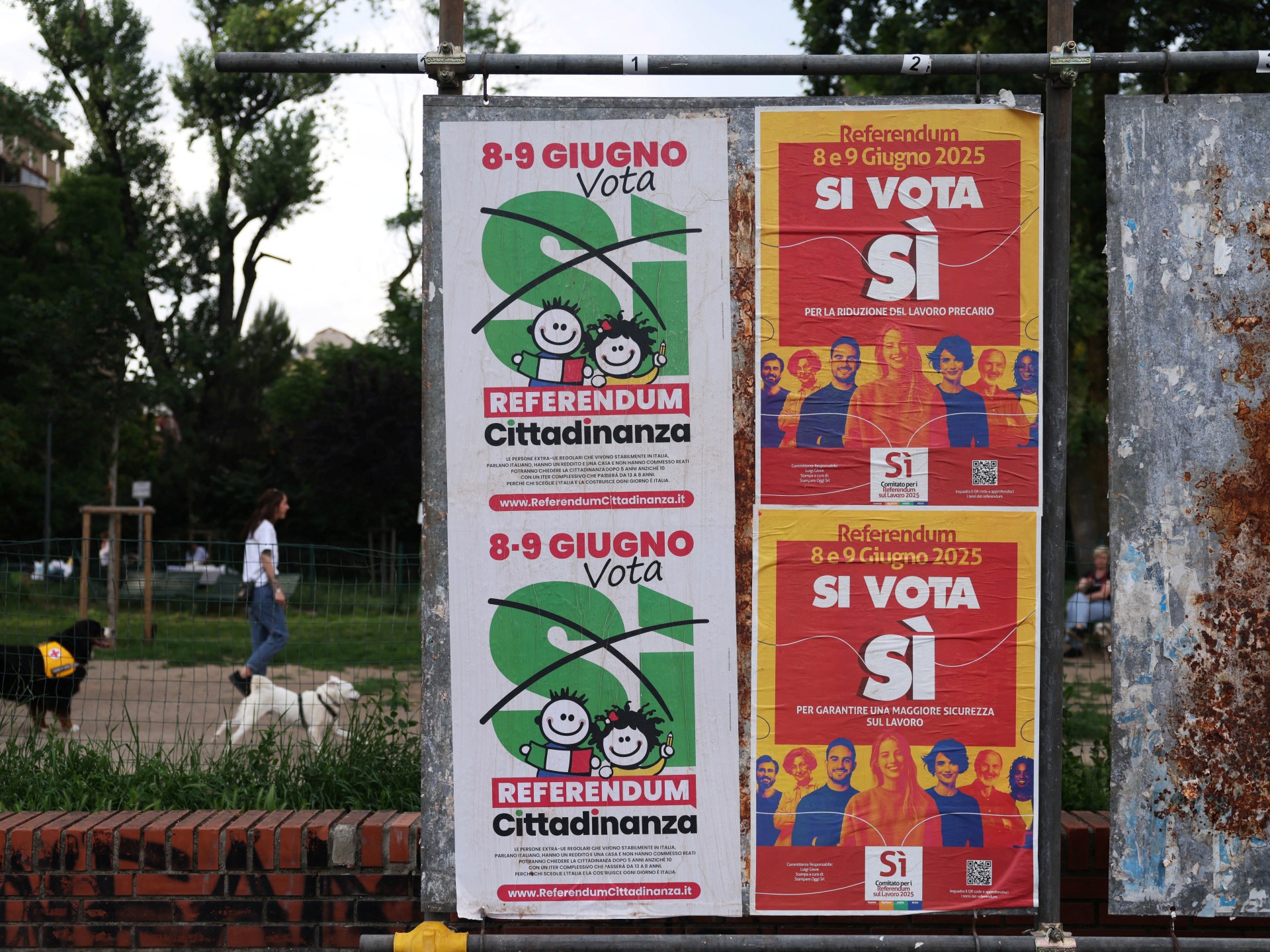In response to concerns that low turnout may render the poll invalid, Italians are casting ballots on easing citizenship laws and strengthening labor protections.
Voting began on Sunday and will continue through Monday.
Italians are asked if they support reducing the time to which an Italian citizen must reside before becoming a citizen by naturalization to five years in the citizenship question on the ballot paper.
Without having any prior marriages or blood ties to Italy, a resident of a non-European nation must reside there for ten years before applying for citizenship. This process can then take several years.
According to supporters, the reform would bring Italy’s citizenship law in line with that of many other European countries, including Germany and France, and would have an impact on 2.5 million foreigners who reside there.
The main union and left-wing opposition parties in Italy put forth proposals for the measures.
Giorgia Meloni, the prime minister, has stated that she won’t cast a ballot at the polls. The action has been criticized as antidemocratic because it would not help to reach the required 50 percent plus one of eligible voters to make the vote valid.
Meloni is vehemently opposed to it despite the fact that his party’s far-right Brothers of Italy has prioritized reducing illegal immigration.
She stated on Thursday that the current system is “one of the most open laws, in the sense that we have consistently been one of the European countries that grant the most citizenships annually.”
In 2023, more than 213,500 people erroneously became Italian citizens, representing a whopping 2% of the EU’s total.
More than 90% of the immigrants were from countries other than the EU, primarily from Albania and Morocco, as well as Argentina and Brazil, two nations with significant Italian immigrant populations.
Even if the proposed reform is implemented, the migration law, which many believe is the most unfair, will remain intact because children born in Italy to foreign parents cannot apply for nationality until they are 18 years old.
Ghali, an Italian singer who was born in Milan to Tunisian parents and has consistently backed child law reform, appealed to his fans to support the proposal as a step in the right direction.
Ghali wrote on Instagram, “I was born here, I always lived here, but I only became a citizen when I was 18.” We ask that five years of living here, not ten, be sufficient to make this nation, with a “Yes.”
A “yes” vote was also urged by Michelle Ngonmo, a cultural entrepreneur and champion of diversity in the fashion industry.
“This referendum is really about dignity and the right to belong,” according to the statement from many of the people who were born here and spent the majority of their adult lives making a difference in Italian society. A lack of citizenship is “like an invisible wall” for them, according to Ngonmo, who has spent most of her life in Italy after relocating from Cameroon as a child.
You can work and pay taxes, but you won’t be fully recognized as Italian. She told the Associated Press news agency, “This makes young generations, especially those in the creative field, feel unappreciative, excluded, and have a lot of potential.”
The other four measures on the ballot address the labor law, including stronger sanctions against dismissal, higher severance pay, permanent contract renewal, and liability for workplace accidents.
Only 46% of Italians were aware of the issues influencing the referendums, according to opinion polls released in the middle of May. With a quorum that was below 35 percent of the more than 51 million voters, the turnout projections were even worse.
Numerous of the previous 78 referendums held in Italy failed because of low turnout.
Source: Aljazeera

Leave a Reply